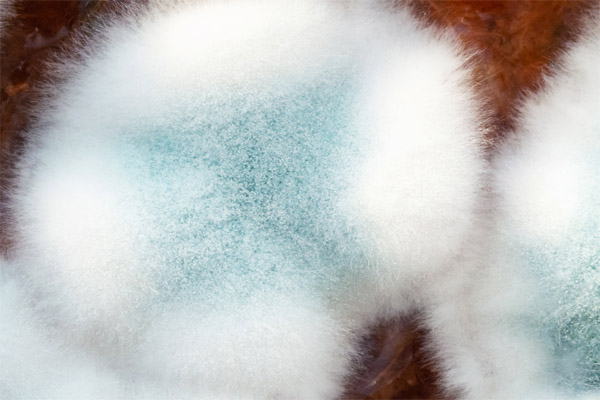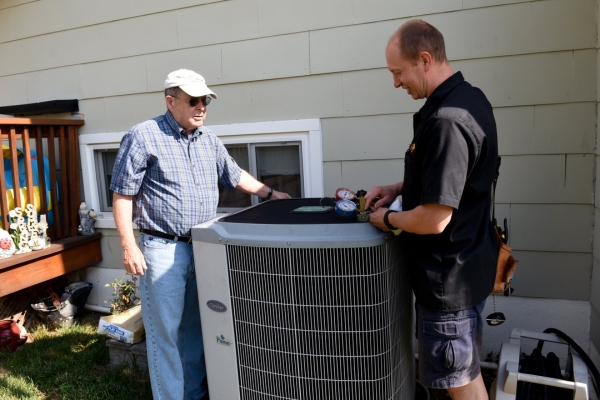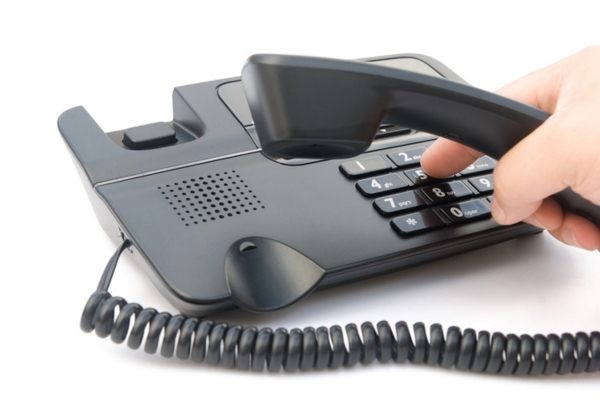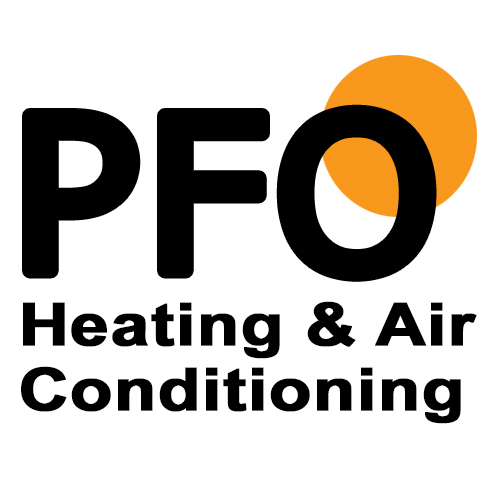
Mold in air conditioning systems is a common issue many overlook, yet it can significantly compromise indoor air quality and exacerbate health problems like allergies and respiratory issues. At PFO Heating & Air Conditioning, our commitment extends beyond simple HVAC maintenance—we ensure that your air quality is pristine, safeguarding your home against potential mold-related hazards.
This article delves into practical strategies for halting the growth of air conditioner mold, ensuring your system operates efficiently and your indoor air remains healthy and clean.
How to Prevent Air Conditioner Mold & Keep Your Home Safe
Contents
- 1 How to Prevent Air Conditioner Mold & Keep Your Home Safe
- 2 Why Mold Grows in Air Conditioning Systems
- 3 Health Risks of Air Conditioner Mold
- 4 Recognizing the Signs of Mold in Your Air Conditioner
- 5 When to Call a Professional HVAC Contractor for AC Unit Mold Prevention or Removal
- 6 Air Conditioner Mold: FAQs
- 6.1 Can Air Conditioner Mold Spread to Other Parts of My Home?
- 6.2 Are Certain Types of Air Conditioners More Prone to Mold Growth?
- 6.3 Does Running My AC Constantly Help Prevent Mold?
- 6.4 Can Mold in My Air Conditioner Affect My Energy Bills?
- 6.5 What Role Do UV Lights Play in Preventing Mold Growth in AC Systems?
- 7 Final Thoughts: Keeping Your Air Conditioner Mold-Free
- 8 Contact PFO Heating & Air Conditioning for Expert HVAC Services
Preventing mold in your air conditioner is essential for maintaining a healthy indoor environment. Let’s explore key strategies for keeping your unit mold-free and your home safe.
Why Mold Grows in Air Conditioning Systems

Mold finds a perfect habitat in air conditioning systems due to the damp, dark conditions within. Several factors contribute to this issue, including excess moisture from condensation, inadequate ventilation, and elevated indoor humidity levels.
Clogged air filters and ducts, along with standing water in drain pans or drip trays, further exacerbate mold growth. Mold in HVAC systems can lead to respiratory problems, trigger allergies, introduce musty odors, and diminish the efficiency of your system.
Stay Cool and Comfortable Year-Round!: Whether you need expert repairs, maintenance, or a brand-new cooling system, PFO Heating & Air Conditioning has you covered. Contact us today!
Health Risks of Air Conditioner Mold

When mold spores from your air conditioning system become airborne, they can significantly deteriorate indoor air quality throughout your home. Exposure to mold-contaminated air can cause various health issues, including respiratory problems like coughing, wheezing, and difficulty breathing.
Allergy sufferers may experience severe flare-ups characterized by congestion, sneezing, and irritation of the eyes and throat. Asthma patients might notice an increase in the frequency and severity of their attacks, while others could develop skin irritation, chronic fatigue, or headaches due to prolonged mold exposure. Those particularly vulnerable include children, the elderly, and individuals with asthma or compromised immune systems.
Beat the Heat with Professional Cooling Services!: Our team is ready to install, repair, or maintain your system so you can stay comfortable all season long. Reach out now!
Keep Your AC Unit Clean & Well-Maintained

Regular maintenance is essential for reducing the risk of mold growth and enhancing the overall performance of your air conditioning system. It is crucial to clean and replace air filters periodically to prevent mold spores from circulating through your home.
Moreover, cleaning the evaporator and condenser coils is vital to eliminating dust, debris, and moisture that can foster mold growth. Professional HVAC tune-ups are critical in inspecting areas prone to hidden mold and ensuring that your air conditioner remains clean and efficient.
Is Your Cooling System Not Working Like It Used To? Don’t settle for weak airflow or inconsistent temperatures—let our HVAC professionals restore your comfort. Call now!
Control Humidity Levels in Your Home
Managing indoor humidity is critical in preventing mold growth in air conditioning systems. Ideal levels range between 30% and 50%. In humid climates, employing a dehumidifier can help maintain these optimal moisture levels, effectively reducing the risk of mold.
Enhancing air circulation through the use of ceiling fans and exhaust fans also plays a vital role in diminishing indoor dampness. Additionally, sealing leaks and properly insulating ducts are crucial steps to prevent condensation buildup.
Ensure Proper Air Conditioner Drainage & Prevent Water Accumulation
Maintaining proper drainage in your air conditioning unit is crucial to prevent the accumulation of water and mitigate HVAC moisture problems. Routinely checking and clearing the condensate drain line helps prevent clogged lines that can lead to water buildup, a key contributor to mold growth.
It’s also important to clean the air conditioner drain pan frequently to avoid standing water where mold can easily proliferate. If you notice persistent moisture issues or suspect a clogged drainage system, it’s advisable to call a professional.
Additionally, installing a float switch or adding drain pan treatments can further reduce the risk of mold, ensuring your AC system remains dry and functional.
Get the Most Out of Your Cooling System! Regular maintenance and tune-ups keep your system running efficiently and help prevent costly breakdowns. Schedule your service today!
Improve HVAC Air Circulation and Ventilation
Enhancing air circulation and ventilation in your HVAC system is key to preventing mold growth. Keeping vents open and unblocked ensures proper airflow throughout your home, which helps mitigate damp conditions where mold thrives. Regular duct cleaning is crucial in preventing mold spores from spreading through your air system.
Upgrading to high-efficiency air filters can significantly reduce the presence of airborne mold particles, further safeguarding your indoor air quality. Installing UV light systems in your ductwork and over evaporator coils can also effectively kill mold and bacteria.
Use Mold-Resistant Products and Air Conditioning Treatments
Integrating mold-resistant products into your HVAC maintenance routine can dramatically minimize the risk of mold growth. Consulting with an HVAC contractor about applying antimicrobial treatments to your evaporator coils and air ducts can help prevent mold in air ducts and other parts of the system.
It is also advisable to opt for air filters that are mold-resistant, such as those with HEPA or activated carbon technology. Regularly using AC-safe disinfectant sprays on accessible surfaces helps maintain cleanliness and control mold spores.
For more comprehensive protection, consider installing a whole-home air purification system. This can filter out mold spores and improve overall air quality, making it an essential part of mold-resistant HVAC products.
Upgrade to an Energy-Efficient Cooling Solution!: A modern system can lower your energy bills and improve indoor air quality. Get in touch now!
Recognizing the Signs of Mold in Your Air Conditioner
Identifying the presence of mold in your A/C early can prevent it from spreading and affecting your health. Here are some signs to watch for:
- Musty or Mildew-like Odors: A mold smell from vents is often the first indication of mold growth within the system.
- Increased Allergy Symptoms or Respiratory Irritation: If you notice a spike in allergy symptoms or respiratory issues indoors, it could be due to air conditioner mold symptoms.
- Visible Mold Growth: Check for visible mold on vents, filters, or other AC components.
- Excess Moisture or Dripping Water: Excess moisture or dripping near the indoor unit can indicate conditions favorable for mold growth.
If you detect any signs of AC mold, it’s crucial to contact a professional for HVAC mold removal to address the issue effectively and ensure your system is properly cleaned and treated.
When to Call a Professional HVAC Contractor for AC Unit Mold Prevention or Removal

Calling a professional HVAC contractor is crucial if mold persists despite regular cleaning and maintenance or when visible mold growth appears inside ducts or on unit components. Expert air duct cleaning service and mold remediation are essential for thoroughly removing mold colonies and preventing their return.
HVAC professionals can also implement mold-prevention solutions such as UV lights and dehumidifiers to maintain a mold-free environment. Relying on professional HVAC cleaning and expert mold prevention measures ensures your system operates efficiently and maintains healthy indoor air quality.
Fast, Reliable Cooling Services When You Need Them! From troubleshooting to full system replacements, our experts provide top-tier HVAC solutions. Book your appointment today!
Air Conditioner Mold: FAQs

Can Air Conditioner Mold Spread to Other Parts of My Home?
Yes, mold in your AC system can easily spread throughout your home. When mold spores circulate through your ductwork, they can settle on walls, ceilings, furniture, and even inside other HVAC components. If left untreated, mold can multiply rapidly, leading to larger contamination issues that require extensive remediation.
Are Certain Types of Air Conditioners More Prone to Mold Growth?
Yes, some AC systems are more vulnerable to mold than others. Older units with poor drainage, inefficient airflow, or clogged components tend to retain moisture, creating ideal conditions for mold growth. Window and portable air conditioners are also more susceptible since they often collect excess condensation. Regular cleaning and proper ventilation can help reduce mold risks in any system.
Breathe Easier with a Clean, Well-Maintained Cooling System! Mold, dust, and poor airflow can impact your indoor air quality—let us optimize your system. Call us today!
Does Running My AC Constantly Help Prevent Mold?
Running your air conditioner consistently can help control humidity levels, which in turn reduces mold growth. However, if the system is oversized for your home, it may cool too quickly without properly dehumidifying the air. This can leave excess moisture in the environment, increasing the risk of mold. A properly sized AC, combined with good ventilation and regular maintenance, is the best way to prevent mold issues.
Can Mold in My Air Conditioner Affect My Energy Bills?
Yes, mold buildup can make your air conditioner work harder, resulting in higher energy consumption. Mold on coils and air filters restricts airflow, forcing the unit to use more energy to cool your home. This reduces efficiency and can result in more frequent breakdowns. Keeping your system clean ensures it operates at peak performance and keeps energy costs down.
What Role Do UV Lights Play in Preventing Mold Growth in AC Systems?
UV lights are an effective tool for preventing mold growth in HVAC systems. Installed near the evaporator coils or inside the ductwork, UV lights help kill mold spores, bacteria, and other airborne contaminants before they can spread through your home. Many modern HVAC systems offer UV purification as an add-on feature, providing additional protection against mold and improving indoor air quality.
Final Thoughts: Keeping Your Air Conditioner Mold-Free
Keeping your air conditioner mold-free is essential for maintaining a healthy indoor environment. The key strategies include regular maintenance, controlling indoor humidity levels, and improving airflow within the HVAC system. These practices prevent mold growth and enhance the efficiency and longevity of your air conditioning unit. For thorough maintenance and specialized mold prevention solutions, consider contacting PFO Heating & Air Conditioning. Our experts are equipped to ensure your air conditioning system remains clean, efficient, and mold-free.
Your Trusted HVAC Experts for Cooling Solutions!: Whether it’s time for a repair, upgrade, or full system installation, we’re here to help. Schedule your consultation today!
Contact PFO Heating & Air Conditioning for Expert HVAC Services
At PFO Heating & Air Conditioning, we pride ourselves on delivering top-tier heating and cooling solutions across the Greater Princeton, NJ. Our team is composed of highly skilled, professionally certified technicians dedicated to providing exceptional HVAC tune-ups, repairs, installations, replacements, and more. Leveraging their extensive knowledge and experience, our technicians ensure your HVAC system operates at peak efficiency.
PFO Heating & Air Conditioning is committed to offering the most competitive prices for heating and cooling services in the region. Our comprehensive maintenance services are designed to enhance your comfort, boost energy efficiency, and minimize energy expenses for your home. Should you require HVAC repair or a system upgrade, we can recommend the most suitable options that align with your needs and budget. We stand behind our work with a solid satisfaction guarantee.
Contact PFO Heating & Air Conditioning today for a free in-home consultation or to arrange for a service visit. Call now!
Click here to contact us now or call us at (800) 253-9001 to find out more! Click the link to view our service area.

Related Articles:
- Protect Your Home: Air Conditioning Safety Precautions
- Understanding Air Conditioner Capacitors: Essential Components for Efficient Cooling
- Why Use A Ductless Air Conditioner For An Oil-Heated Home Without Ducts?
- Here’s Why Your Lights Are Flickering When AC Turns On
- How to Cool a Room Without AC: Effective Tips & Tricks



